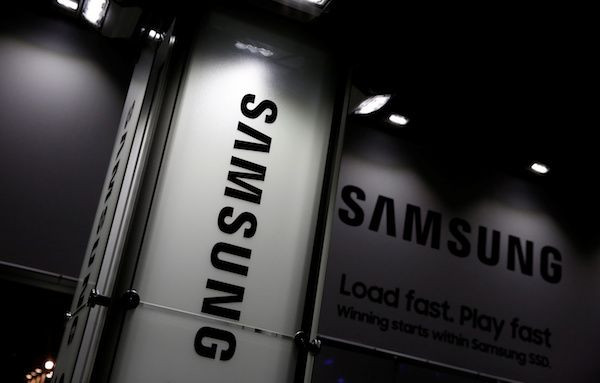Galaxy S9 Release Rumors: Samsung AI Software Rebrand Expected

Samsung’s next frontier for artificial intelligence may be a dedicated AI interface, according to tech informant Universe Ice. The leakster shared a photo from a Bixby Voice launch event in China Tuesday. Pundits have considered that Samsung may have inadvertently teased a rebrand of its interface for the Galaxy S9 as an artificial intelligence focused software called Galaxy Ai UX. Like many mobile companies, Samsung may include a greater AI push on its devices in 2018.
Galaxy AI UX,2018.2,Galaxy S9 UX? pic.twitter.com/QZKHfexhfJ
— Ice universe (@UniverseIce) November 21, 2017
Samsung introduced the Bixby AI assistant on the Galaxy S8 in March 2017. However, the truly AI driven aspect of Bixby, its Bixby Voice feature, did not release until July. The feature allows users to interact contextually with enabled devices, primarily via speech (there are also touch and text options).
Since then, Samsung has delivered updates to its 2017 flagships, to allow users to completely disable the capacitive Bixby button on the side of the Galaxy S8 and the Galaxy Note 8. That development, in addition to Samsung’s newly announced software plans, could be an indication of the manufacturer may soon double down on its AI development to create a more seamless experience. However, Samsung has yet to connect any details about software to future devices, such as the Galaxy S9.
Prior reports have indicated that Samsung is already working on firmware for the Galaxy S9 under the build numbers G960FXXU0AQI5 and G965FXXU0AQI5 (for Galaxy S9+). Samsung also announced in early November a beta program for the Samsung Experience 9.0 interface expected to be the UX for the Galaxy S9 and Galaxy S9+. Currently, there is no word on whether or how Samsung Experience 9.0 and Galaxy Ai UX are related.
While many companies are evangelizing their AI developments, there are still many limitations apparent. Huawei has introduced the Mate 10 smartphone with a dedicated Neural Network Processing Unit (NPU). Huawei promises faster computing and long-term power maintenance due to its NPU; however, primary AI functions on the Mate 10 include identifying subjects and objects in photographs and language translation features. Google’s AI development in 2017 has a similar focus on cameras, photography, photo organization, and translation. Meanwhile, Apple has showcased its AR Kit code, the company has made little development in the AI space. Overall the truly intuitive version of AI consumers have been expecting has yet to emerge.
Samsung has invested in AI focused companies, including DeePhi Tech and Graphcore, SamMobile noted. However, it remains to be seen what new innovations Samsung plans to bring to the AI space.
Rumors currently suggest the Galaxy S9 could be announced between January and March of 2018.
© Copyright IBTimes 2025. All rights reserved.




















